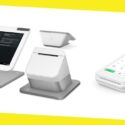Blockchain to Be Used to Store and Manage Personal Medical Records
This post was last updated on August 13th, 2021

The sector in which blockchain is having the greatest impact is that of financial technology or Fintech. Accenture, the world’s largest business consulting firm, published a report in 2017 stating that blockchain technology could reduce the infrastructure costs of 8 of the world’s 10 investment banks by 30% on average, allowing for estimated savings among 8 and 12 billion dollars on annual costs. In fact, when a financial institution places financial instruments such as syndicated loans or derivatives, the registration of the transaction takes time and involves back-office processes rather onerous. These are processes that are based on the negotiation of contracts with the help of important law firms and contacts between the parties to complete the transaction. On average, the time to resolve a syndacated loan exchange takes 20 days and the operations are quite expensive for financial institutions (Centers, Fanning, 2016). You can guess how blockchain proves to be a very useful tool in this sense.
Contents
ToggleSectors which start using bitcoin
Regarding the already mentioned smart contracts, a specific paragraph illustrates some concrete examples of application; I will limit myself here to mentioning a few. Visa and Docu Sign have already started an experiment conducted in the car leasing sector for some years. The two used the distributed registers (blockchain) for the construction of a system prototype that has as its objective the realization of a process that culminates in the leasing of a car in a completely autonomous way and disconnected from the intervention of an operator. In the car sharing sector, the Israeli start-up La’Zooz, proposing itself as the “anti-Uber”, has created its own digital currency which is digitally registered using technology blockchain. Instead of using a centralized network to call taxis, people can contact La’Zooz to look for other people traveling on similar routes and use the crypto currency “beaten” by La’Zooz to pay for the passage.
Insurance sector and bitcoin
In the insurance sector, Axa launched the first travel insurance, Fizzy, an innovative coverage formula that can be acquired on the web and on mobile devices that automatically compensates in the event of delayed air travel. The whole process is guaranteed by the combination of parametric insurance (i.e. based on a parameter and in this case the historical data and air flights of the last seven years) and by blockchain technology, which guarantees the inviolability of data and contracts. In e-commerce, currently dominated by a giant like Amazon, which has been able to establish a great trust in users, startups like Open Bazaar are developing utilities based on distributed ledgers designed to connect buyers and sellers without the intervention of a super parties intermediary and, of course, without associated brokerage costs. visit https://thelibrasoftware.com
Agri-food sector and bitcoin
In the agri-food sector, the blockchain could instead implement traceability systems. Several companies have previously begun to explore the possible use of blockchain in the food safety sector. IBM recently launched IBM Food Trust, a network of processors, wholesalers, distributors, manufacturers, retailers that uses the blockchain with the aim of improving transparency, standardization and efficiency throughout the food chain. Food industry has already joined this network, just to name a few.
Another sector in which blockchain technology could have an important impact is that of patents as it would allow to publicly registering the existence of a document in a certain time, without revealing its contents.
In the healthcare sector, the blockchain could be used to store and manage personal medical records as an extensive electronic medical record (EMR) recording system. Syntrix consulting group offer innovative solutions to optimize the reporting capabilities of your EMR system. Taking advantage of the anonymity and privacy features typical of this technology, personal medical records could be encoded as digital resources and registered on the blockchain just like digital currencies, so that individuals can grant doctors, pharmacies, insurance companies and other party’s access to their health data through a private key. The integrity of the clinical data would contribute to the reduction of the repetitions of the analysis and tests, at the same time reducing the possibility of errors in reporting a clinical data. On the other hand, a better and more integrated availability of data would allow their better use by the doctor, reducing errors in the diagnosis phase.
Recommended For You
How Marketing Automation Help Insurance Agents Generate Leads
Most Inside
Most Inside offers high-quality recommendations and valuable updates to enhance all aspects of your life, providing premium guidance and enriching experiences.




